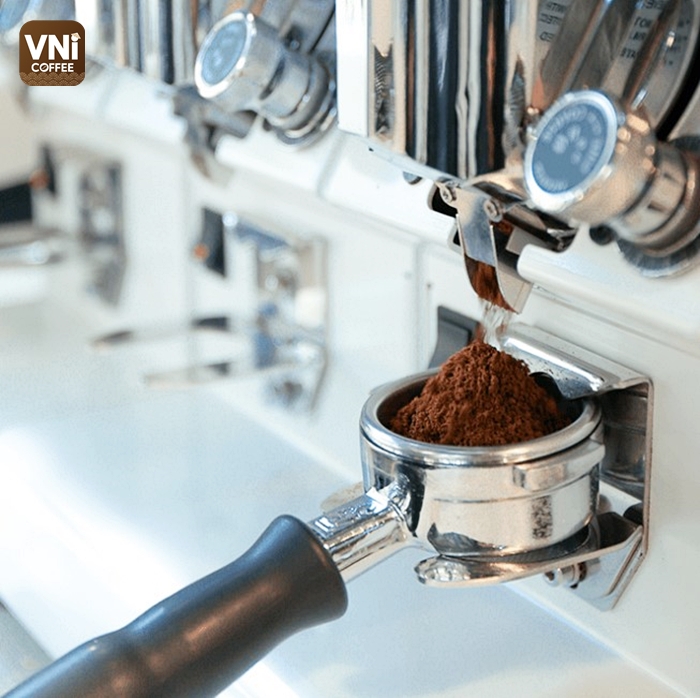
Specialty coffee and everything you need to know
It’s quite common to catch the phrase Specialty Coffee appearing densely on coffee websites today. This exists as a concept that affirms the quality of selected coffee beans in their own right, which also means they must pass a certified coffee taster (SCAA) or a licensed Q Grader (CQI) in each stage.
Existing for more than four decades, with its distinctive quality and class, the Specialty Coffee market quickly developed and won the hearts of coffee connoisseurs. The most interesting things about it probably lie in not only its flavor value but also the complex closed production process, to ensure crystallization of the most quintessential bitter drops in every cup of joe.
Certain requirements for Specialty Coffee
As mentioned, there are certain qualifying conditions to judge whether coffee is Specialty Coffee or not, including:
- Having a good bean source, mostly Arabica coffee
- Grown and cared for on a farm that meets the standards for soil, water, air, and altitude
- Good planting and care techniques
- Collecting and sorting coffee berries
- Proper processing and preservation of the coffee beans
- Proper preparation and extraction process
- Reaching a Cupping score above 80 out of 100 (according to SCAA’s standards)
The origin
One of the advantages of Specialty Coffee is to highlight each region’s unique local flavors. The target customers of this segment are looking for the experience, knowledge, and stories that local coffee brings. Therefore, you have to trace the whole farm as well as the elements of variety, planting height, soil type, cultivation, preliminary processing, and roasting level. The more detailed the information, the more clearly the coffee’s level is shown.
Specialty Coffee only uses selected Arabica varieties for its superiority in flavor and caffeine content which is less than that of Robusta. However, not all Arabica coffee beans are Specialty Coffee, some varieties give extremely good quality, but under the same growing and care conditions, some set out worse value. According to the standards set by SCAA, only about 10% of Arabica varieties in the world today meet the high grades to create Specialty Coffee.
Planting and Harvesting
For the best bean quality, coffee farms need to take good care of altitude, clean water, fresh air, the location far from residential areas or industrial zones, etc. Besides, the process of harvesting also plays an important role. When it comes to the harvest season, typical farms often pluck the berries. Though this method has the great advantage of saving time, both ripe and green berries are collected, leading to uneven coffee bean quality. To overcome this problem, all Specialty Coffee farms conduct coffee harvesting by handpicking. With the perfect ripe-timing, the beans are better sorted.
Processing
All Specialty coffee is wet processing: after being harvested, the beans will be separated to remove the seeds, and soaked in water, so that the coffee is fermented and the viscous part is removed. Then, they will be passed through a trough, once again to remove the slime, and finally dried for about a week. This is the most common technique yet also the most expensive method as a requirement for many machinery systems.
In order to avoid any adverse effects on the quality, every step from the milling, dehulling, fermenting, or drying is followed a strict standard and handled with care. In the fermentation stage, time and temperature are key factors; the drying time also needs to be adjusted reasonably, not too fast or too slow to keep the coffee not drying evenly or possibly being re-wetted during later storage.
Roasting and Preserving
Before being roasted, the coffee is screened and reclassified by size and weight. This is an extremely important step to sift through the most delicious coffee beans to create Specialty Coffee. Coffee beans that do not meet the standards for color or damaged beans will be discarded. The trend of roasting from medium to light (230 – 260 degrees Celsius) helps to celebrate the distinctive flavor of the coffee. The darker the roast, the more the original flavors will fade, giving way to the bitter taste.
The storage period partly directly affects the quality of Specialty Coffee, so it’s necessary to be watchful about the factors of temperature, humidity, packaging, and preservation. This premium product is best used within a month of roasting to ensure freshness and taste before moving on to the next stages.
Preparation
Brewing coffee right after grinding will make the flavor released the most. You should not grind and store coffee because when the contact area of the coffee and the air is increased, the aroma of the coffee will spread and fly away much faster. According to a published study, just 15 minutes after being ground, coffee has lost up to 60% of its inherent flavor; therefore, you need to ensure the freshness of the coffee before making it.
There are many ways to make delicious Specialty Coffee. Depending on the method of preparation, the fineness of the coffee powder should also be adjusted appropriately. However, no matter how you prepare it, you still have to adhere to the right standards for step quality, temperature, pressure, water and coffee powder ratio, and so on, to have a full cup of Specialty Coffee best.
Creating Specialty coffee is a process that requires meticulousness and love for the coffee of a team; that’s why it has led the way for decades. According to the latest statistics, a kilogram of roasted Specialty Coffee beans can range from $35 to $65.






